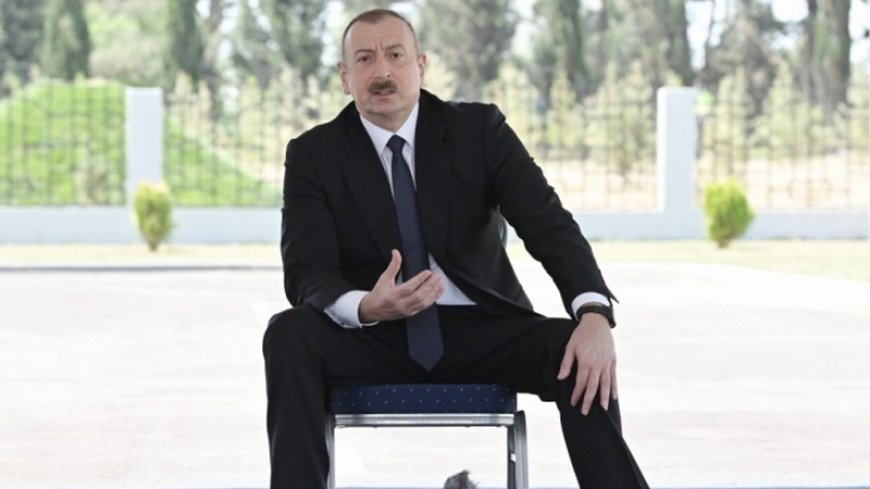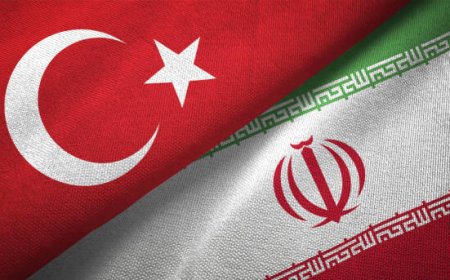The international community is concerned about the policies of the Aliyev government
The international community is concerned about the policies of the Aliyev government

The concern of the international community with the economic sanctions imposed by the government of Ilham Aliyev against the Armenians in Nagorno-Karabakh is growing every day.In this regard, the European Union, in a published communiqué, expressed concern about the complete blockade of the Lachin corridor. The statement said that the action of the Baku government threatens the Armenians living in Nagorno-Karabakh to have access to essential goods and raises serious concerns, as it could lead to a humanitarian crisis.
EU Foreign Service spokesperson Nabil Masralli explained: "This European body has been closely monitoring the rise in tension on the international borders between Azerbaijan and Armenia over the past few weeks, in addition to similar incidents along the lines of contact."
The EU is issuing a communiqué as Armenian government officials and local authorities in the self-proclaimed Nagorno-Karabakh Republic have repeatedly accused Ilham Aliyev's government of preventing the transfer of seriously ill patients from Nagorno-Karabakh to hospitals in Armenia. At the same time, after the blockade of the Lachin corridor by the government of Ilham Aliyev, the supply of electricity and gas to Nagorno-Karabakh was repeatedly disrupted, as well as the Internet and mobile communications were cut off in the area.
The blockade of the Lachin corridor by the government of Ilham Aliyev since December 12 last year threatens the lives of 120,000 residents of Nagorno-Karabakh, who suffer from a lack of food and medicine. Despite these inhuman conditions, since June 22, the government of Ilham Aliyev has completely blocked the Lachin corridor, setting up concrete barriers at the entrance. The goal of the Ilham Aliyev government in threatening Armenians in Nagorno-Karabakh is to win concessions from the government of Nikol Pashinyan, who is said to have Western tendencies and is trying to protect Western interests in the South Caucasus.
Before the publication of the EU communiqué, the International Court of Justice and many countries of the world, condemning the blockade of Nagorno-Karabakh by the government of Ilham Aliyev, demanded the release of the Lachin corridor. Despite these requests, the Baku authorities, with the support of foreigners, continue to ignore the demands of the international community. The same foreign support for the militant policies of the Ilham Aliyev government in the region has prompted many Western analysts and officials to criticize the policies of the Baku authorities. For example, Michael Rubin, Senior Fellow at the American Enterprise Institute (AEI), who participated in a fact-finding mission to Armenia, at the June 21 hearing on support for the people of Nagorno-Karabakh at the U.S. Congressional Commission on Human Rights. Thomas Lantos, announced: "The President of the Republic of Azerbaijan, Ilham Aliyev, has changed and become unmanageable over the past decade. I would say that his trajectory is almost the same as that of Saddam Hussein."
Pointing to the expression of extreme Turkic views on the part of the President of Azerbaijan, Michael Rubin considered it reasonable to compare this Azerbaijani-speaking politician with Saddam against the backdrop of territorial ambitions towards Armenia and said: "Ilham Aliyev has territorial ambitions towards Armenia, and this cannot be considered empty rhetoric."
At the same time, this active American expert demanded a reduction in American aid to the government of Ilham Aliyev and explained: "Azerbaijan is one of the most corrupt countries on earth. Despite the huge resources of oil and gas and gold, copper and silver mines, per capita income in this country is lower than in Georgia and even Armenia, which do not have natural and God-given resources. Billions of dollars from the land revenues of the Republic of Azerbaijan are credited only to the personal account of Aliyev and his family."
Recent developments between Azerbaijan and Armenia are taking place at a time when the government of Ilham Aliyev is constantly participating in regional and international meetings with the aim of signing a permanent peace agreement with Armenia. But what is really happening is evidence of the obstruction of the President of Azerbaijan towards signing a permanent peace agreement with Armenia. For example, in response to requests from the Armenian authorities to sign a peace agreement, Ilham Aliyev recently emphasized the need to reflect post-war realities in a peace agreement between Baku and Yerevan.
The President of Azerbaijan also stated: "Armenia has officially recognized the territorial integrity of Azerbaijan. However, these statements should still be on paper, and Armenia should sign them. Only in this case, long-term peace can reign in the South Caucasus."













































